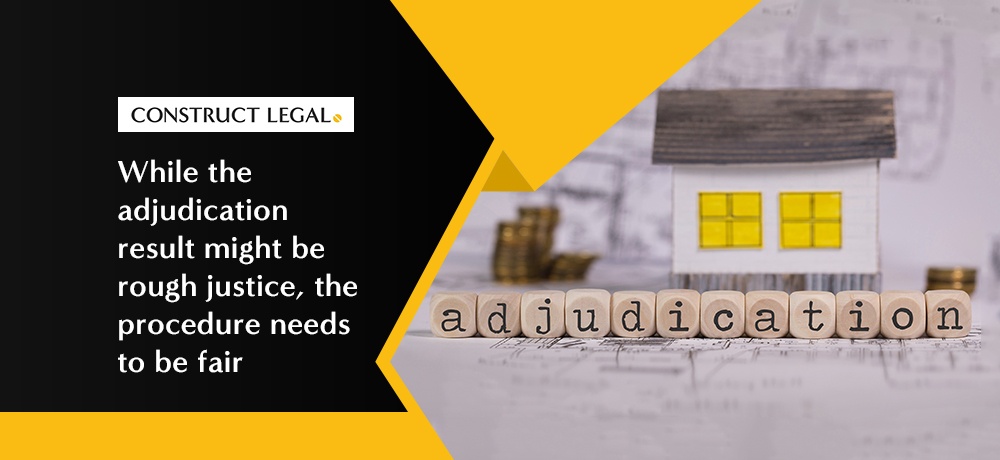While the adjudication result might be rough justice, the procedure needs to be fair

Ledore Investments v. Dixin Construction1 is the first decision where an adjudication determination was set aside and remitted back to the adjudicator. The Divisional Court found that the parties did not have an opportunity to make submissions on the determinative issue, resulting in a breach of procedural fairness.
Background
Ledore, carrying on business as Ross Steel, was a subcontractor to Dixin on a project. Ross Steel submitted three invoices to Dixin. Although Dixin received payment from the owner for the work included Ross Steel’s three invoices, Dixin did not pay Ross Steel and did not give Ross Steel a notice of non-payment.
Ross Steel commenced an adjudication for, among other relief, payment of its three invoices. Dixin argued that it had set-off claims against Ross Steel and that no monies were owing to Ross Steel.
The adjudication was in writing with no oral hearing.
The adjudicator found that Dixin was not required to pay Ross Steel for the invoices, but the reasoning turned on a point that neither party had raised. The adjudicator found that since Dixin had not delivered to the owner a “proper invoice” as defined in the Construction Act , the prompt payment provisions did not apply. The adjudicator included in his determination that he was concerned with the result and stated that if prompt payment provision had been engaged he would have found that the three invoices be paid.
Analysis
The Divisional Court found that judicial review was available because the adjudication procedures did not afford the parties the right to a fair adjudication contrary to to 13.8.1(5) 5 of the Construction Act.
Since the parties were not given an opportunity to make submissions on the key issue, being whether the prompt payment provisions applied, there was a breach of procedural fairness.
Section 13.12(1) of the Construction Act authorizes the adjudicator issues to issue directions respecting the conduct of the adjudication and the court found that it would have been more efficient for the adjudicator to request written submissions on the key issue.
1Ledore Investments v. Dixin Construction, 2024 ONSC 598
Key Takeaways
While the Construction Act contemplates a speedy and targeted adjudication process, the procedure still needs to be fair. Significant orders can be made as part of the process and therefore parties have a fundamental right to be heard on the key issue.
If you have any questions about construction disputes, including adjudication and liens, please contact a member of Construct Legal.
This article is information and not legal advice.